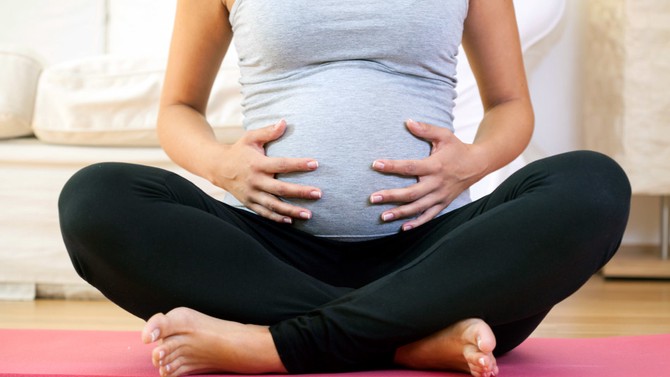4 Surprising Reasons to Have More Sex, According to Science
Here’s motivation to spend more time together in the bedroom, the shower, the backseat...you get the idea.
By Emma Haak

Photo: pixdeluxe/istockphoto
To Do Your Brain Some Good
How sex helps: Orgasms increase blood flow to that essential organ.
The science: Sex makes your brain light up, scientifically speaking. Using fMRI machines, researchers have monitored women's brains during orgasm and found a widespread uptick in activity, not just in one or two areas, says Barry Komisaruk, PhD, a professor of psychology and an adjunct professor of radiology at Rutgers, and one such researcher. "These machines monitor how much oxygen your nerve cells are using. The more active they are, the more oxygen they need, and they get it through increased bloodflow," he explains. "By delivering more oxygen to the brain, orgasms increase the amount of bloodflow and nutrients reaching your neurons." Experts haven't pinned down how exactly this might translate into real-world benefits (increased critical-thinking skills, stronger memory, etc.), but they're confident that it means good things for your cognitive health.

Photo: KatarzynaBialasiewicz/istockphoto
To Help You Conceive, but Not for the Reason You Think
How sex helps: Regular sex—even outside of your fertile period—may trigger immune and inflammation changes that prep your body for pregnancy.
The science: Your immune system can help or hurt your chances of conceiving. For example, it can assist with uterine tissue changes that make implantation more likely, or it can identify sperm as a harmful invader and basically tell it to scram. Sexual activity, regardless of when it happens during your cycle, appears to signal that it's time to switch from protector mode to a more nurturing, time-to-get-pregnant state, found two recent studies, one in Fertility and Sterility and the other in Physiology & Behavior. The "how" isn't totally clear, but the fact that women using condoms experienced the same changes as women who weren't using them suggests that it's something about sex itself that causes the effect, says Tierney Lorenz, PhD, a visiting research scientist at the Kinsey Institute and lead author of both studies. What's more, another of Lorenz's studies (in Evolution, Medicine, and Public Health) found that sexually active women had lower inflammation levels around peak fertility, which helps with ovulation.

Photo: alvarez/istockphoto
To Stay Calm and Collected During That Big Presentation
How sex helps: Your body won't react as strongly to the stress.
The science: People who'd had intercourse frequently in a two-week period experienced a smaller spike in blood pressure compared with people who engaged in other forms of sexual activity or no activity at all when, during the experiment, they were asked to speak in public or do math out loud (the horror), found a small study in Biological Psychology. Your body releases oxytocin (the love hormone that's also been shown to reduce stress) during sexual activity, particularly when you orgasm, and because intercourse may feel more intimate than other sexual activities, the researchers speculate that it could produce more oxytocin activity.

Photo: OJO_Images/istockphoto
To Ease Those Won't-Quit Aches, Even if It's Only Temporary
How sex helps: It blocks pain signals.
The science: It's more technical than simply distracting you from your discomfort. "There's a neuropeptide that gets released into the spinal cord in response to pain. We found in rats that vaginal stimulation blocked that release, and we suspect it's probably the same mechanism at work in humans," says Komisaruk, whose research has shown that vaginal stimulation, in particular, has a powerful pain-blocking effect, lasting anywhere from a few minutes to over a day. Clearly, some women are already in the know: When men and women were asked to give reasons why they have sex for a study in Archives of Sexual Behavior, the researchers came away with 237 different answers, and for women, many included pain relief, says study co-author Cindy Meston, PhD, a professor of clinical psychology and the director of the Female Sexual Psychophysiology Lab at the University of Texas at Austin.
Published 02/24/2016

